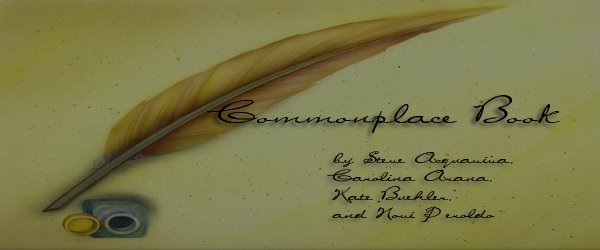Although her intimate thoughts and feelings were left unattended and hidden from public view, as “[she] grew Religious as to the outward,” Elizabeth Ashbridge’s frustrations with religion are utilized to overcome the constraints along her path to establish an independent identity. What had defined Ashbridge up to her religious awakening was her condition as the unwanted daughter of her Father, an indentured servant girl, a tragically young widow, and the victim of an abusive husband—a series of roles she had to play under the authority of outside forces. Drawn to religion as a means to overcome the pain of her tragedies and her “[own] Sins” (Ashbridge, 156), as she calls the tragic occurrences in her life, she believes she can find deliverance from the stifling forces that keep her constant in her discontentment. Ashbridge appeals for “Pardon” (Ashbridge, 156) and welcomes punishment so she may be freed. By sole virtue of being a woman, as is likewise evident in the events of Anne Hutchinson’s life (Antinomian Controversy, 316), she is suffocated by the need to comply with the standards set for her to be a lady, to maintain control of her household, and be submissive to the wishes of others – interpreting misfortune in the domestic realm as grounds for personal guilt and shame. Through many narratives is evident the correlation between attempting to juggle the private aspect of identity with the public pressure of predetermined roles or places for women. Ashbridge is ravaged by an “old Accusser,” that I interpret as the patriarchal institutions that impose control over women, which ultimately leads her down the frightening and unfamiliar path to self-discovery. Unaccustomed to searching for a place of her own, Ashbridge longs for “all the world [to be hers]” ("Ashbridge, 156) and thereby displays her longing for a place to bring recognition to her identity. Religion serves as a vehicle for her to gain this freedom. What is ironic is that, as in the life of Hutchinson, religion is often utilized as a weapon against the revolt of women. For Hutchinson, the men in her society interpreted the word of God not in its intended fashion but as a means by which they successfully became “[her] judges” (“Antinomian,” 316). A duality exists within religion concerning the lives of women. In one sense religion means education, inclusion in society, and a sense of hope; alternatively, religion can act as a burden and a tool of manipulation by convincing women that they are divinely meant for a sentence in a domestic prison. In Ashbridge’s case, the symbolic struggle to find a religion that best suits her, and thereby an identity that she is satisfied with, becomes a woman’s quest to break away from a suppressive patriarchal force and lessen the need to veil the private aspects - emotions, thoughts, ideas -of her existence. Her frustration and dissatisfaction with all other religions shows the desire of her true self to finally be recognized, and in the most liberating form possible (she is now able to preach). Her husband felt she had been “altered” to a woman from which he could obtain no “comfort” (Ashbridge, 157). He personifies that suppressive patriarchal force. Their connection is severed once she can no longer fulfill the domestic roles set for her - represented by Ashbridge as her ability to "divert [her husband] with a Song", symbolic of the entertainment value placed on women ("Ashbridge", 156). True conversion was needed for her to get out of this “melancholy state”; her discontent is her wound and her husband - and all the patriarchal forces he represents - is the cause. She no longer embodies those outward roles of an abused wife or unloved daughter – Ashbridge evolved to be defined by the content of her soul (which is devoid of gender identification) as her Quaker religion, for all its pitfalls, allowed her to be.
Works Cited
1) "The Antinomian Controversy, 1636-1638. A Documentary History" Edited by David D. Hall. Duke University Press: Durham and London, 1990.
2.) Ashbridge, Elizabeth. "Some Account of the Fore Part of the Life of Elizabeth Ashbridge." Journeys in New Worlds: Early American Women's Narratives. Ed. William L. Andrews, Sargent Bush, Jr., Annette Kolodny, Amy Schrager Lang, and Daniel B. Shea. Madison, WI: The University of Wisconsin Press, 1990.
Thursday, March 5, 2009
Subscribe to:
Post Comments (Atom)

No comments:
Post a Comment